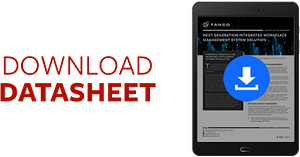Update: On Wednesday, October 16, 2019, the Financial Accounting Standards Board (FASB) voted to move forward with finalizing its proposed delay of the ASC 842 lease accounting standard for private companies, nonprofits and small reporting companies.
FASB is now one step closer to officially deferring the effective dates for certain guidance in its Accounting Standards Codification (ASC) for certain entities. Under the proposed delay, the organizations impacted by ASC 842 would have until January 2021 to become compliant with the new lease accounting standard. This represents one extra year from the existing deadline and is a potentially critical change for companies currently struggling to adopt the new regulations.
Earlier this year, Deloitte released the results of a survey that found only 30% of private companies planned to adopt ASC 842 by the current deadline. Perhaps the survey’s most eye-opening discovery: 77% of respondents noted their companies were either unprepared or just somewhat prepared to comply with the new lease accounting standards.
If you are a privately held company, nonprofit, or small reporting company, we have the three fast facts you need to know about FASB’s proposed delay for ASC 842.
1. When is the proposed new ASC 842 effective date for private companies?
If enacted, the proposed delay would push back the deadline for private companies to adopt the new lease accounting standards by one year – until January 21, 2020. FASB must issue a formal proposal for public comment before finalizing the new ASC 842 compliance dates.
2. Are public companies effected by the proposed new ASC 842 dates?
No — the new leasing standard took effect for public companies in January 2019, though many public organizations requested the effective date be postponed for other issuers.
3. Why did FASB vote to push back the ASC 842 lease accounting standards?
The American Institute of CPA’s (AICPA) formally requested FASB delay the new standard in May. The group noted two major reasons for the request: overlap with FASB’s new revenue recognition standard and the struggle public companies had meeting their deadline for complying with the new ASC 842 lease accounting standards.
Before AICPA’s request, several FASB board members expressed support for changing the effective date for ASC 842 in hopes it would give private companies time to better educate themselves.
If enacted, FASB’s push to delay the ASC 842 deadline by one year gives private companies the time to make more informed decisions about all aspects of the process, including selecting the right technology. Many public companies are now dealing with software challenges, and an extra 12 months will give private companies the breathing room to choose wisely. Having worked alongside many public organizations to achieve compliance, Tango is a FASB ASC 842 expert.
Are you interested in learning more? Download Tango’s Lease Accounting Software datasheet below.
